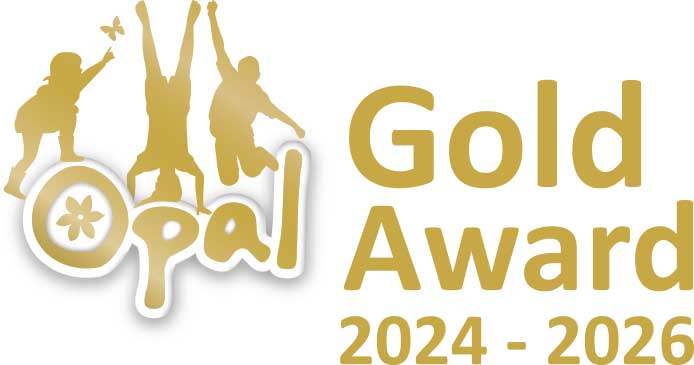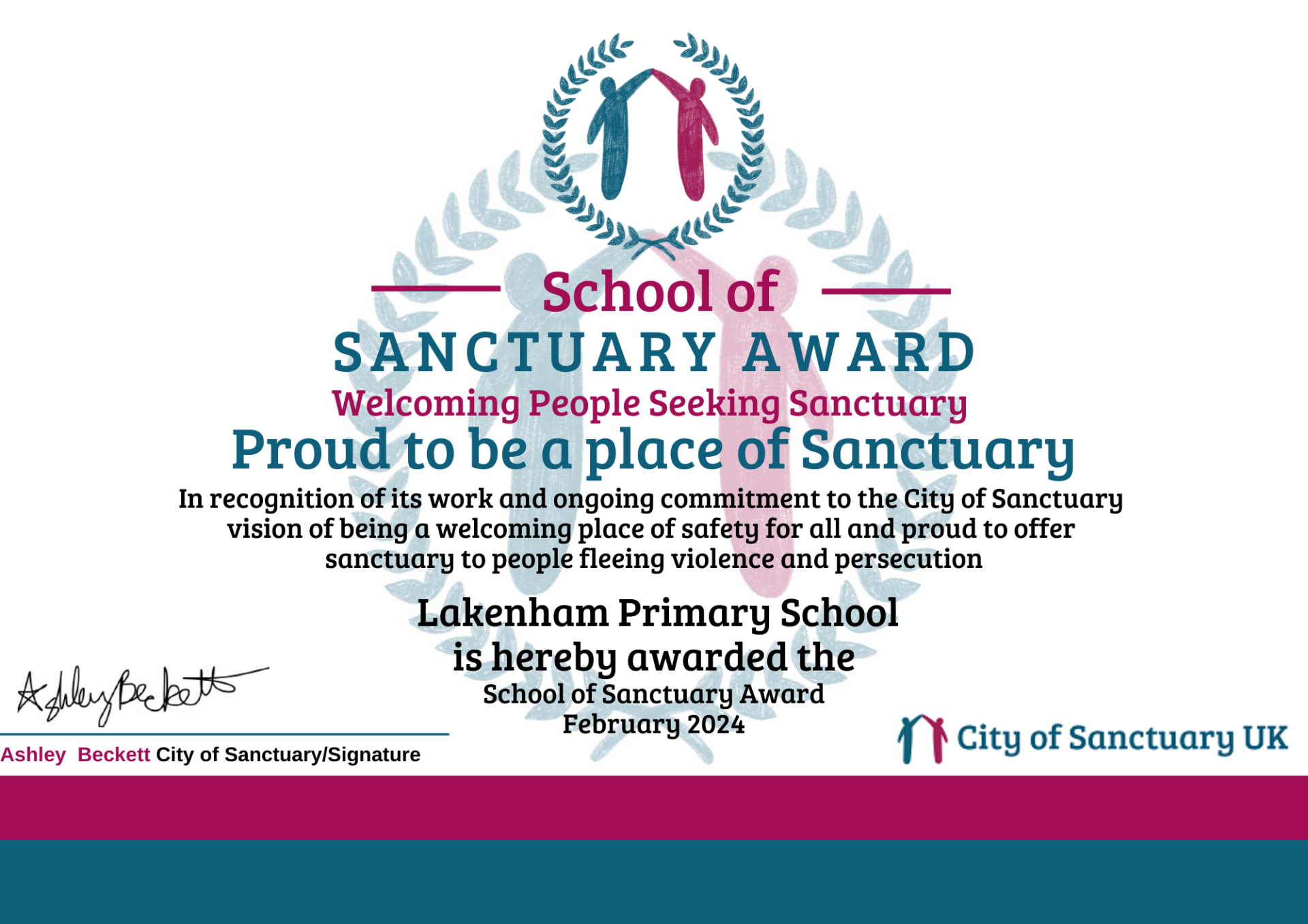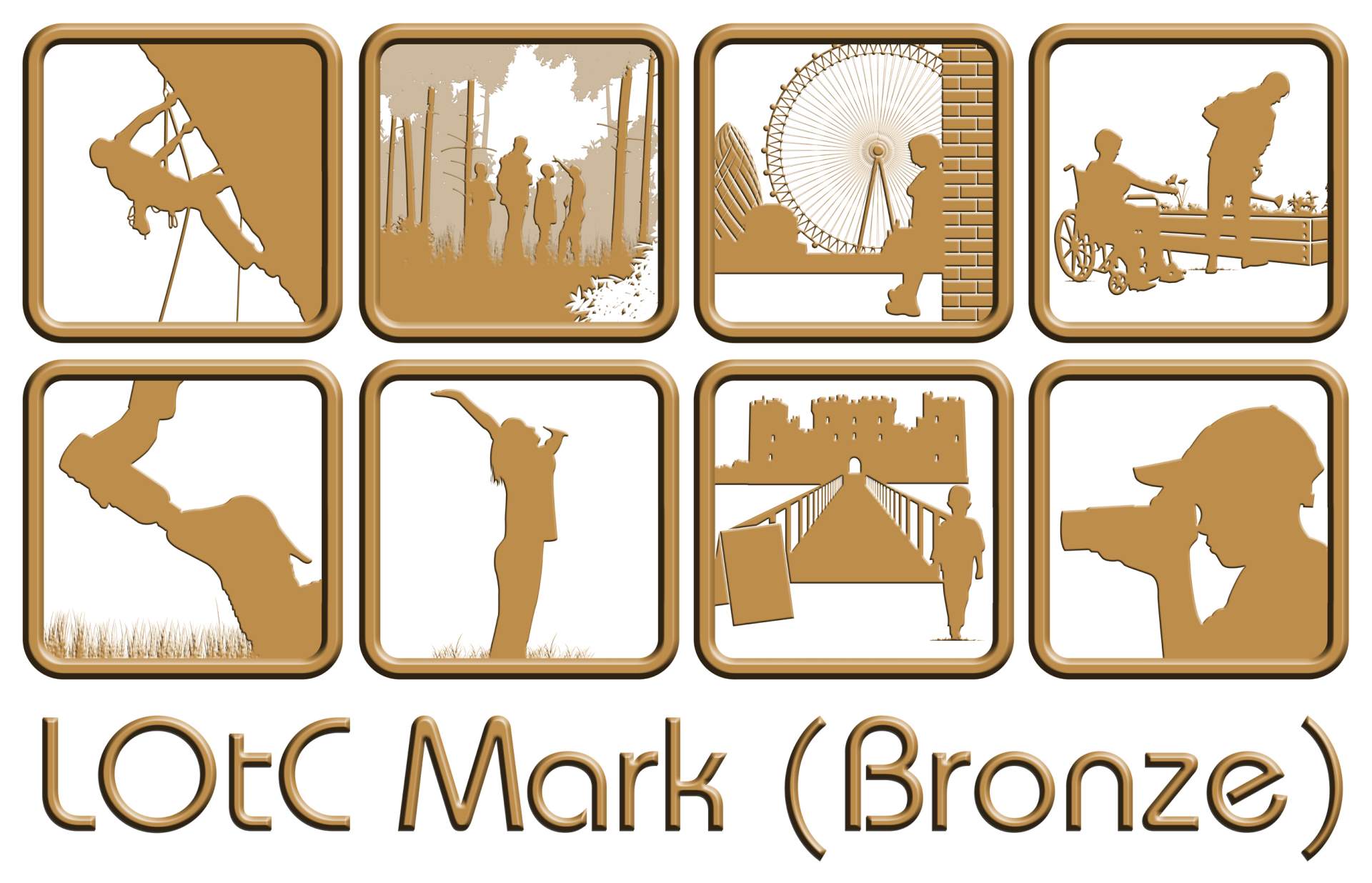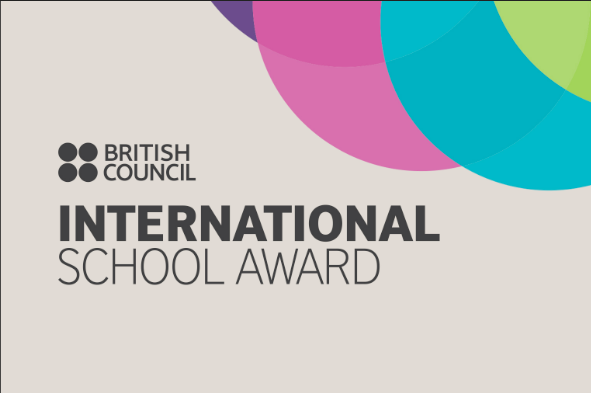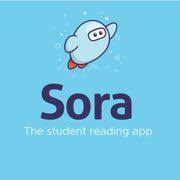Week Commencing 6th July 2020
Miss Emmerson would like to share a story with you all about going to school. Here is the story "I am too absolutely small for school" By Lauren Child
2 Weeks left!! This week we are going to focus on moving forward into Reception. Whether this is Reception at Lakenham or a new school, it’s ok to feel scared or worried about this change.
Over the next two weeks and during the summer, please don’t stress about focussing on learning- writing and numbers and being “Reception Ready”. We do all these things in every day life -through play! Just keep working on being independent and trying things for yourself. If you do have any questions or queries we are here to help! Before the end of term, you will receive some information about September and the transition taking place. Now there has been some guidance released on this, we can put the preparations in place.
Thankyou for your time, patience and support.
Getting Reception Ready
- It is important that our children are able to function independently throughout a full day therefore practicing the routines now will help them in September.
Here are some things to practice:
-Getting up at normal time for school -Getting dressed all by yourself in your uniform
-Keeping all your things in your bag (taking them out and putting away when finished) -Putting toys away when finished
-Eating a packed lunch-opening packets, starting with sandwiches -Washing up bowl/plate when finished
-Using a knife and fork - cutting up food all by yourself ---Going to the toilet and wiping yourself clean
-Pouring own drinks into cups
Activities
- Make a chatterbox- You will have all received your transition packs in the post or as part of your learning packs last week. You will have had a chatterbox activity provided. Using an old shoebox/Tupperware tub/Bag collect a selection of objects, photo’s, memorabilia that will help your teachers get to know you. These will be shared with your friends and teachers in September.
- All about Me booklet – Again in your transition packs received or in your learning packs last week you would have received and All about me booklet. Fill this is over time with your adults to help your new teachers get to know you (for Lakenham and other schools too!)
- Make an emotions jar/tub – Decorate a jar or tub however you like and any time you think or talk about Reception, write down what you feel and what is making you feel that way. E.g “I worry about a new classroom” or “I’m excited to meet my new friends”.
Cooking
Follow the link for this pizza recipe!
https://www.bbcgoodfood.com/recipes/collection/kids-cooking
You can also use some ready made pizza bases like pitta bread/wraps/bagels
Phonics
- Now you have a few different sounds that you have looked at you can play a game with these sounds. Its important to only use sounds that we have looked at.
-Collect an assortment of objects beginning with 'n' and 't' sounds. Again these could be pictures or real objects,
-Make a space for two different piles. You can do this using hoops or drawing two circle on the floor with chalk. One for 'n' objects and one for 't' objects.
-Encourage your child to sort the objects into the correct groups -does it begin with 'n' or 't' sound?
- Rhyming Soup - Make Silly Soup- Silly soup can be used for either alliteration (where the words begin with the same sound- e.g curvy cat) or for rhyming (where the words sound the same at the end e.g cat hat)
-To play silly soup you will need a bowl and a spoon. Next you will either need to find or draw and cut out pictures of things that rhyme. If you can have the real objects this is much easier. This week we are going to focus on rhyming with Bog. You might put these items in your bowl: log, dog, fog, cog, jog, frog
-Once you have all your items ready take them out of the bowl one at a time and say the name of the item.
Then when the bowl is empty you sing: I'm gonna make some silly soup I'm making soup that silly I'm gonna put it in the fridge To make it nice and chilly. Then the child will choose an item to put into the bowl. Repeat the song each time you do this and recognise the name of all the items put in so far. Repeating them and emphasising the rhyme in the word.
_________________________________________________________________________________
With only three weeks left of our school year its time to reflect on our year at Nursery and think ahead to our move to Reception. Whether you are attending our school or moving to another, it is really important to get to know the adults who will be working with you and the classroom that you will be learning in.
This is why over the next few weeks we will be focusing on these things. If you are attending our Reception at Lakenham Primary School you should have been sent a pack in the post with lots of information about your new class and some activities for you to do over the summer. These activities do not have to be just for the children our school, they will benefit all of our children therefore I will be sharing these with you as your learning over the next few weeks.
It has been a pleasure learning and working with all of you, not just the children but you as adults to. Thankyou so much for all your support and guidance over the past year and again for all your support during this tricky time. I hope to see you all again very soon.
You've got a friend in me!
We are very lucky to have made the friends that we have at Nursery. Some of them will stay with us and some of them will be going to a new school for Reception. Here is a song I think you might know, that will help us think about our friends.
Reflection Project
This week we are going to reflect on our year at Nursery an we are going to do this in lots of different ways.
- Time to talk - Talk together about Nursery. What do they remember? What were their favourite activities? Think about the friends they made and the visits we had.
- Make a thankyou video - During the Corona-virus, we have had lots of time to reflect on our everyday lives and it has made lots of people reflect on the things they are grateful for. We can do exactly the same. Think of the things that you want to say thankyou for and record this in a video to share with your friends and teachers online.
- Make a book. Using 2 pieces of paper, fold each of them in half and tuck inside each other. (If you have a stapler you can secure the paper together using this. If you don't have a stapler you could use a hole punch and thread through some string.)
-Think about what you could draw on the front of your book to tell us what it will be about and then inside, draw 3 pictures to represent your time at Nursery- this could be your favourite things you like to do, the friends that you have made, an activity we have done -Visits to the shop or library/world book day.
-If your child wishes to write a sentence to caption this they are more than welcome. Again this could be just mark making or letter like shapes- as long as this is their work.
Please share these online as we would love to see their reflection on their year at Nursery.
Phonics
- Now you have a few different sounds that you have looked at you can play a game with these sounds. Its important to only use sounds that we have looked at.
-Collect an assortment of objects beginning with 'i' and 's' sounds. Again these could be pictures or real objects,
-Make a space for two different piles. You can do this using hoops or drawing two circle on the floor with chalk. One for 'i' objects and one for 's' objects.
-Encourage your child to sort the objects into the correct groups -does it begin with 'p' or 'a' sound?
- Rhyming Bingo- Separate the cards into two piles. One of the piles will be the bingo mat and the other pile will be the cards that need to be cut up. Each player needs a bingo mat. The caller should shuffle the picture cards and then call out the word that each picture represents. Each players bingo mat will represent two rhyming sounds and needs to listen out for the words that go on their mat. When they have got one full set of rhyming words they can say "Bingo!" If you don't have access to a printer you can always draw out your own pictures.
__________________________________________________________________________________
Week Commencing 22nd June 2020
Our story of the week is Yucky Worms By Vivian French.
Literacy
- On a large piece of paper, draw a big worm. Then think of as many words as you can to describe the worm. E.G slimy, slithery, wriggly and write them around the worm. Think about what it looks like, would feel like and how it moves.
Maths
- Comparing lengths of worms. You can either draw your own or use the worms attached and cut them out. Which worm is the longest? Which worm is the smallest? Can you put them in order of size?
- Measure the worms using non-standard measures. Have a go at measuring the worms using any objects in your home. Here is an example to show you.
Knowledge and Understanding the World
- Make a fact file all about worms! You could look up some information about worms on the internet or you could use a book. Our story of the week included lots of information about worms, have another listen to see what you can hear.
- Make a wormery! Here's what you will need:
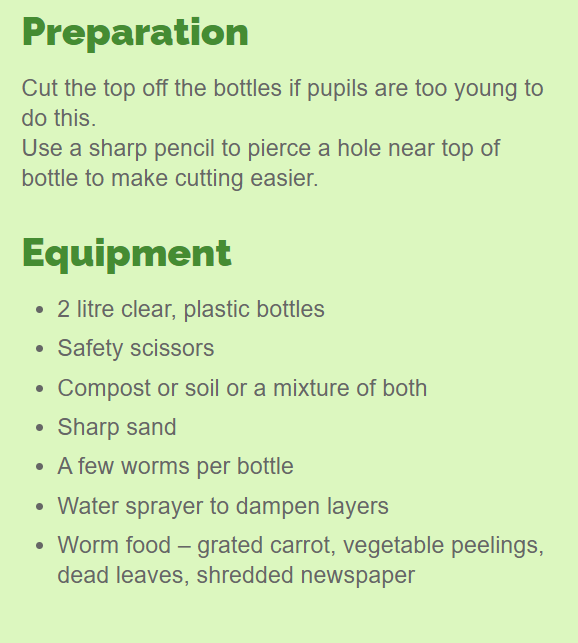
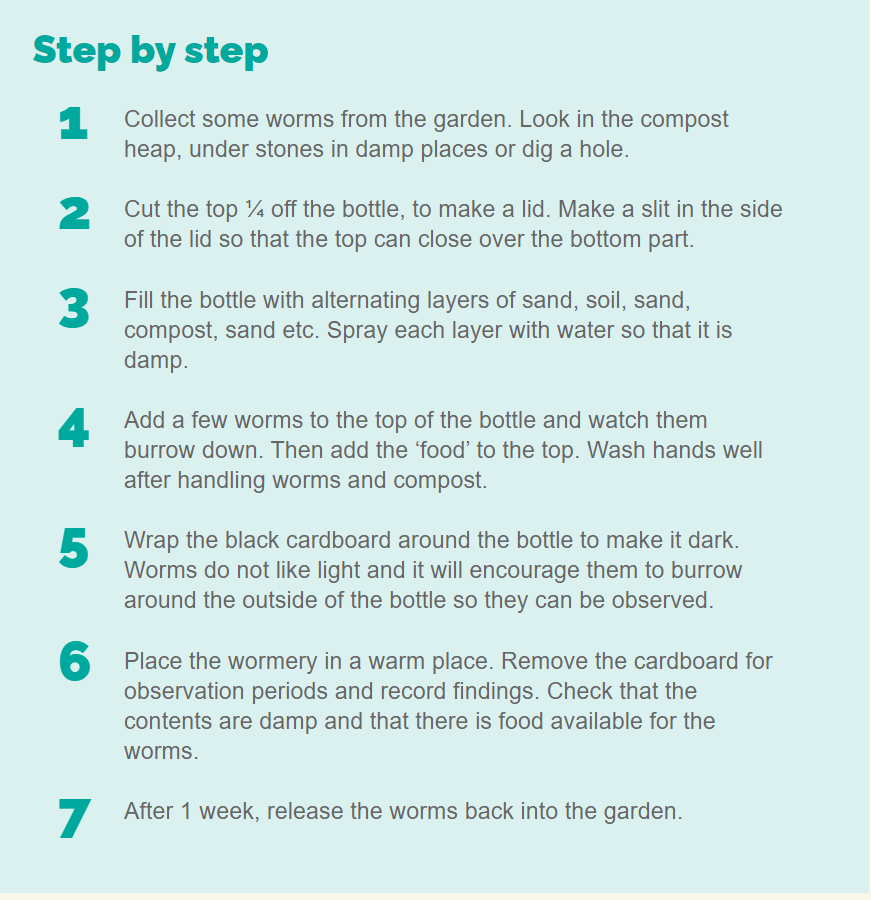
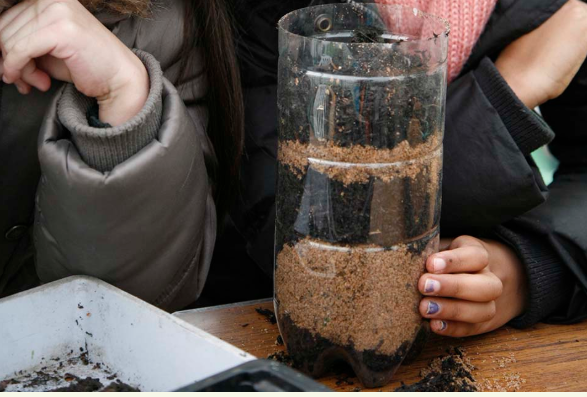
Communication and Language
- Time to talk! If you could be a worm, would you be a long wiggly worm or a short wiggly worm? Why?
Expressive Arts and Design
- Make your own playdough worm. Dont forget to include the ridges along the body and the eyes and mouth!
- Worm painting - You can use string or fresh noodles for this. Simply dip the string or noodles into the paint and drop on to the paper. Carefully peel off the string or noodle and dip back into the paint for the next worm!
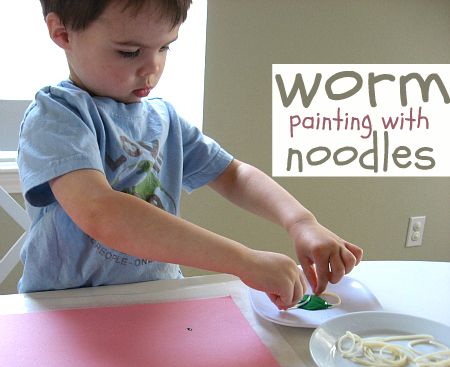
Physical Development
- Move your body like a worm! How do they move? Which part of their body goes first?
Phonics
- Now you have a few different sounds that you have looked at you can play a game with these sounds. Its important to only use sounds that we have looked at.
-Collect an assortment of objects beginning with 'p' and 'a' sounds. Again these could be pictures or real objects,
-Make a space for two different piles. You can do this using hoops or drawing two circle on the floor with chalk. One for 'p' objects and one for 'a' objects.
-Encourage your child to sort the objects into the correct groups -does it begin with 'p' or 'a' sound?
- Make Silly Soup- Silly soup can be used for either alliteration (where the words begin with the same sound- e.g curvy cat) or for rhyming (where the words sound the same at the end e.g cat hat)
-To play silly soup you will need a bowl and a spoon. Next you will either need to find or draw and cut out pictures of things that rhyme. If you can have the real objects this is much easier. This week we are going to focus on rhyming with Fox. You might put these items in your bowl: Box, locks, socks, clocks, rocks.
-Once you have all your items ready take them out of the bowl one at a time and say the name of the item. Then when the bowl is empty you sing:
I'm gonna make some silly soup
I'm making soup that silly
I'm gonna put it in the fridge
To make it nice and chilly.
Then the child will choose an item to put into the bowl. Repeat the song each time you do this and recognise the name of all the items put in so far. Repeating them and emphasising the rhyme in the word.
__________________________________________________________________________________
In September lots of our friends from Nursery will be moving up to Reception. You will be receiving lots of information about this transition through email and in the post. Here is a video from one of your new teachers Mrs Shadid.
______________________________________________________________________________
Week Commencing 15th June 2020
Our story of the week is "One is a snail, Ten is a crab" By April Pulley Sayre and Jeff Sayre.
Literacy
- Can you make your own number book like this? You will need to think of the different objects to use that represent the numbers and draw these along side the written numbers.
Maths
- More or less- You will need some playing cards for this game or you could make your own cards using numbers and spots if this is easier. Choose a number between 1 and 10 and select this card to put down in the middle. Put the rest cards into one pile and turn them face down. Turn the cards over one at a time and choose whether that number is more or less that your chosen number. More cards go on the right and less cards go on the left. If you come across a number that is the same as your chosen number this should go on top of your chosen number card. You should end up with 3 piles (less, the same and more)
- Number Hunt - Go on a walk and see what numbers you can find. Where are the numbers? What do they tell you?
- Make your own icecream- You will need:
-2 Tablespoons of Sugar
-8 Tablespoons of Double Cream
-8 Tablespoons of Milk
Decide your flavour:
Chocolate Icecream add 2 Tablespoons of Cocoa Powder
Vanilla Icecream add 1 Teaspoon of Vanilla Essence
Strawberry Icecream add 2 Tablespoons of Strawberry Jam
Put in resealable freezer bag and shake. Squeeze out air and put in the freezer. MAKE SURE THE BAG IS FLAT!
Understanding and Knowledge of the world
- Visit the beach- Have a day out at the beach and explore. What does the sand feel like? what can you see/smell/hear? If you can't get to the beach do you have some sand at home you can use? If you don't have any sand, you can make a sensory tray using blitzed cheerios (or similar cereal) and add objects like shells, pebbles and spades)
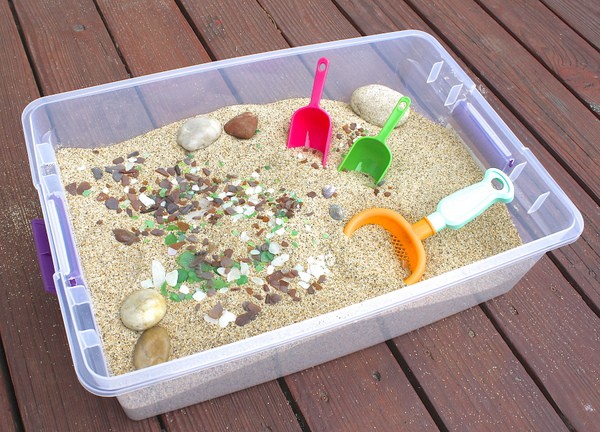
Phonics
- Simon Says using robot talk - Play a game of Simon says where you ask the children to carry out actions by segmenting the words. E.G Simon says can you j-u-m-p, Simon Says can you h-o-p, Simon says can you s-i-t, Simon says can you s-k-i-p, Simon says can you k-i-ck, Simon says can you s-p-i-n, Simon says can you m-ar-ch, Simon says can you b-e-n-d, Simon says can you c-l-a-p, Simon says can you c-l-i-ck.
- -Using an old tub/box/bag, go on a sound hunt around your house. You are looking to find objects that all begin with the 'i' sound. You only need around 5 objects to go in your box/tub/bag. -'i'- as in ink not "igh'"/I.
Communication and Language
- Talking Time: If you could go anywhere, where would you go? Why would you go there? Have you been there before? What do you think you might see?
Expressive Art and Design
- Have a go at making your own sea creatures. Here are some examples to help.
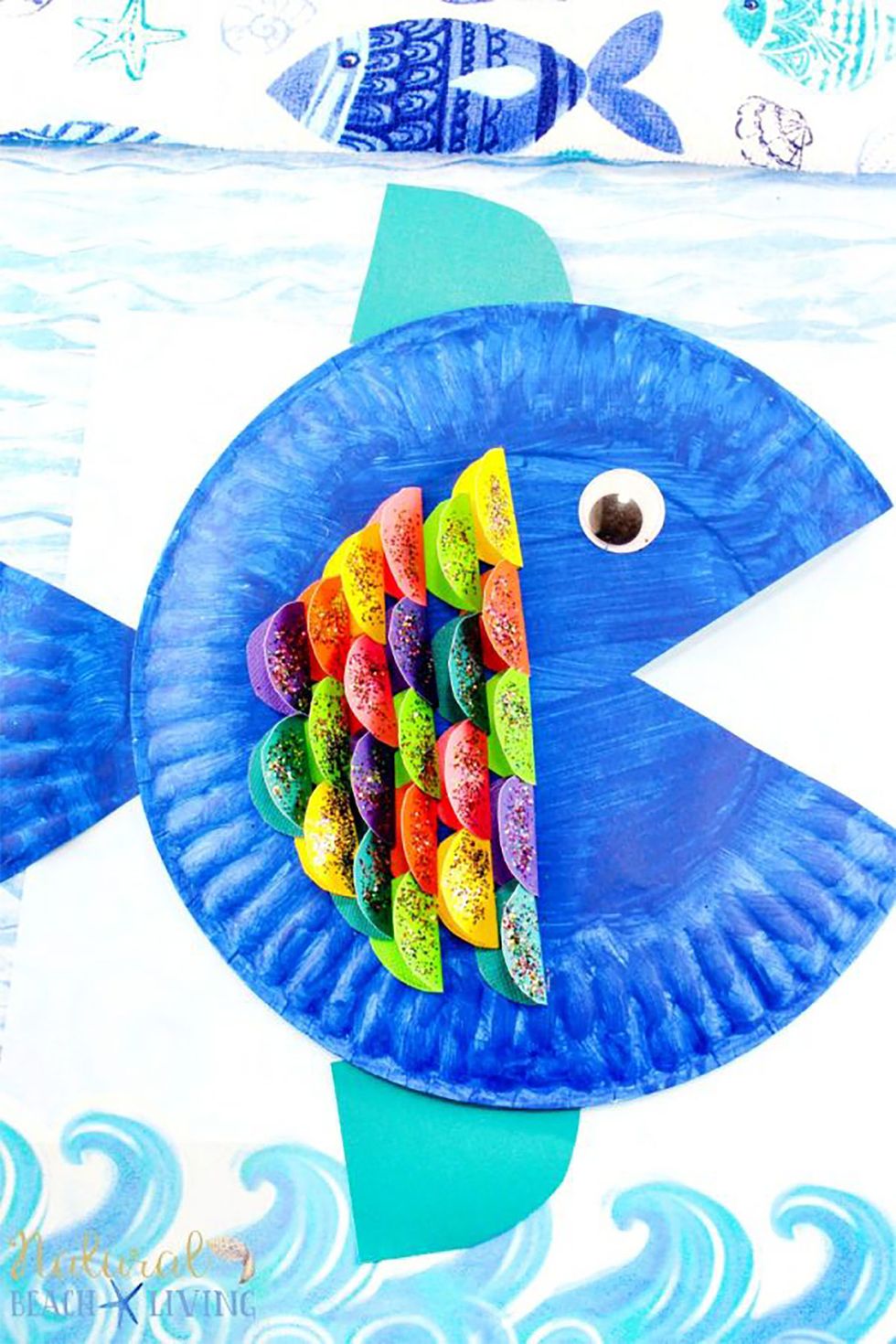
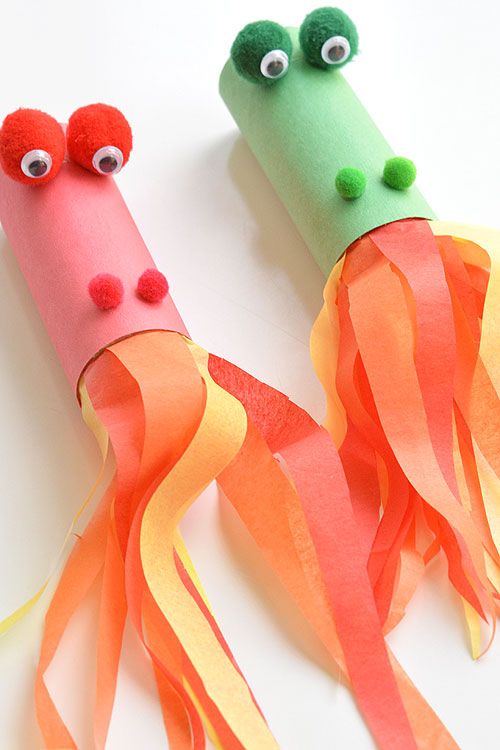
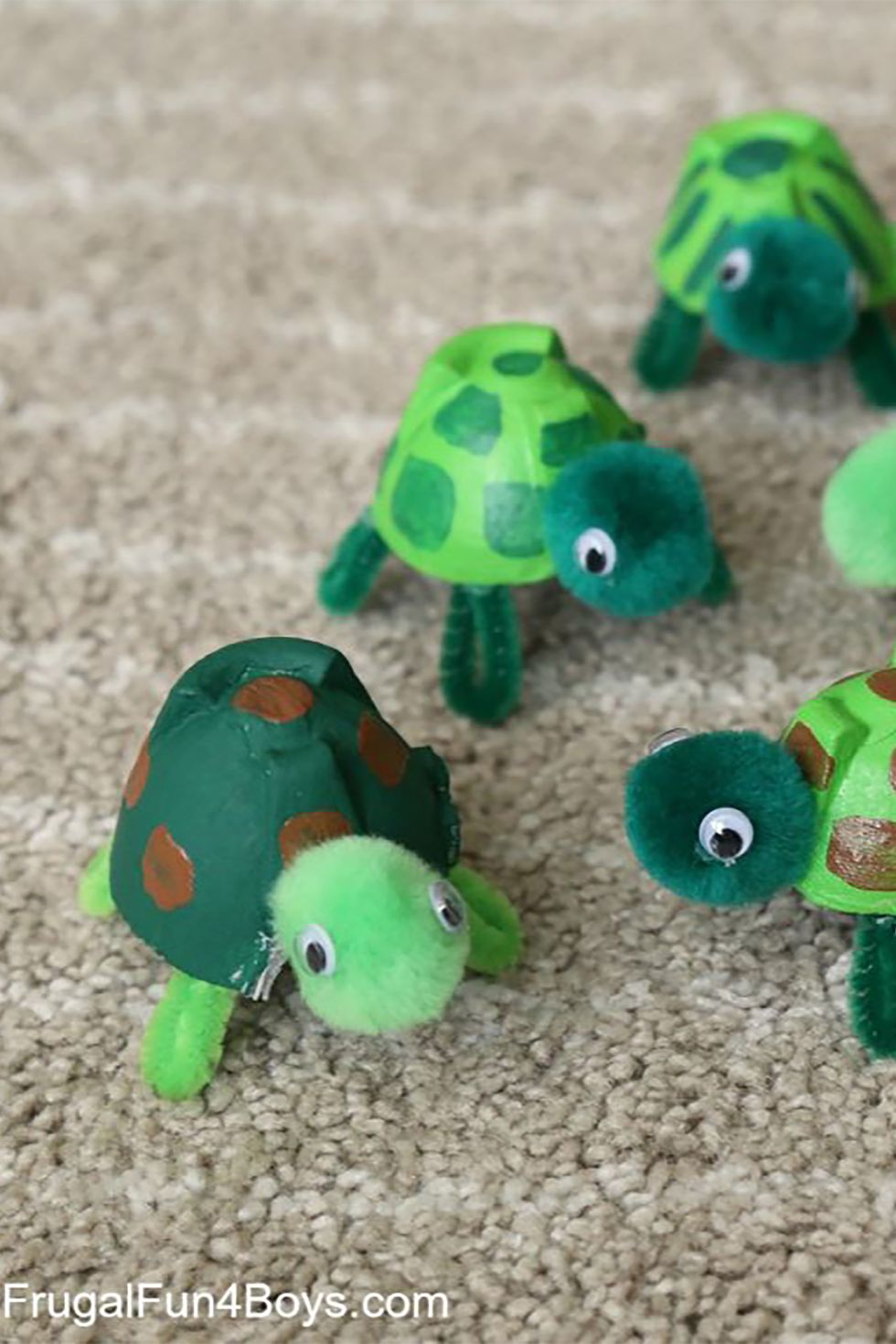
Physical Development
- Here is some yoga for us to do! It is an under the sea video- so bring your swimming costume!
__________________________________________________________________________________
Week Commencing 8th June 2020
 Story of the week!
Story of the week!
Our story of the week this week is The Very Busy Spider By Eric Carle.
Literacy
- Re-tell the story using puppets or small world. Encourage the use of the repeated phrase "The spider didn't answer. She was very busy spinning her web."
- Draw and label a spider using these key words: Leg, Claw, Head, Body, Eyes, Feelers. Spinnerets Here is a picture to help!
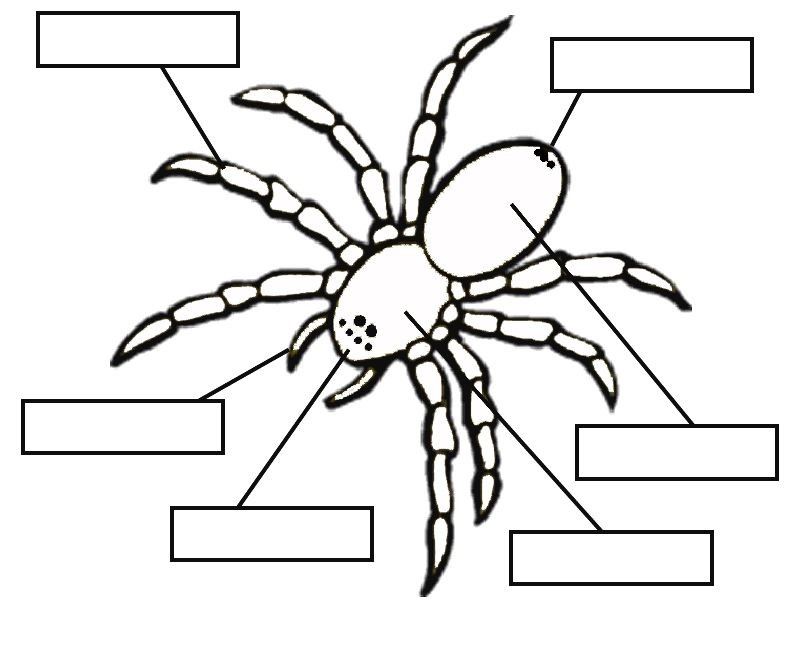
Maths
- Sort the minibeasts into two piles. Those with legs and those without legs. When you have done this, think about other ways your could sort them. Find a printable resource below or you could draw these yourself!
- Draw a large spider body on a piece of paper - DO NOT DRAW THE LEGS. Using pegs and a dice, add different amounts of legs to your spider. Remember spiders can only have 8 legs, so you can't add too many!
Communication and Language
- Match the pictures to the descriptions using the cards below.
Expressive Art and Design
- Sing Incey Wincey Spider
- Make your own spider web. You will need:
-A paper plate / Circle cut out of paper
-Whole Punch
-String/ribbon
Start by punching holes around the edge of the plate- These need to be spread apart and not too close together.
Thread the string/ribbon through one of the punched holes and tie a knot in the back. Then continue to thread the string through the holes across the front of the plate in all different directions.
Tie a knot in the end of the string to stop it falling out.
- Make your own playdough. You will need:
-1 cup of flour
-1 cup of salt
-1 cup of hot water
-1 tblespoon of oil
-Food colouring or paint(black preferrably but any colour will do)
Mix together until it forms a dough consistency. Roll out the dough and cut out circle shapes using either cutters or a mug. Then using any household items add to create a spider. You may use spaghetti, pipe cleaners, buttons, straws- whatever you can find.
- Make puppets to re-tell the story. Draw pictures of the animals and cut them out.
KUTW
- Go on a bug hunt in your garden or in a local park. Keep a track of the insects you find by drawing pictures or use the tick chart attached. Where are these bugs living? some bugs like to live on leaves and in the sun but some insects like to live under logs in dark, damp environments.
Phonics
- Sound Box/Bag
-Using an old tub/box/bag, go on a sound hunt around your house. You are looking to find objects that all begin with the 'n' sound. You only need around 5 objects to go in your box/tub/bag.
-'n- as in no not "nuuh" or "eeeeen" - Odd One out - Collect a group of items that rhyme. E.g socks, rocks, blocks, fox, box, crocs, frocks, clocks. You will also need to collect a group of items that don't rhyme with your chosen word. E.g bat, ball, flower, cow, shoe. Lay out two items that rhyme and item that is different. Say the name of the item as you lay it out. The children are looking to find the object that does not rhyme with the other two. E.g sock, block, bat. The bat is the odd one out.
__________________________________________________________________________________
Week Commencing 1st June 2020
I hope you have all had a lovely and fun half term with lots of sunshine and happiness. Here is a new selection of learning and activities for you to enjoy.
 Story of the week!
Story of the week!
Our story of the week is ...
What the Ladybird Heard By Julia Donaldson and Lydia Monks. Here is Mrs. Emmerson sharing the story with you!
Literacy
- In our story this week, the author (the person who writes the book) uses special words to describe the animals. Julia Donaldson doesn't just say "Once upon a farm lived a hen, a duck, a goose, a sheep, a hog, a horse, a dog, two cats, a cow and a ladybird", she uses adjectives to describe them. E.g "A fat red hen", "A wooly sheep", "A hairy hog". Can you find 5 objects in your house and use some special adjectives to describe them? Mrs Emmersons scavenger hunt will have helped you with this!
- Hefty Hugh and Lanky Len used this map of the farm to find their way to the prize cow shed.
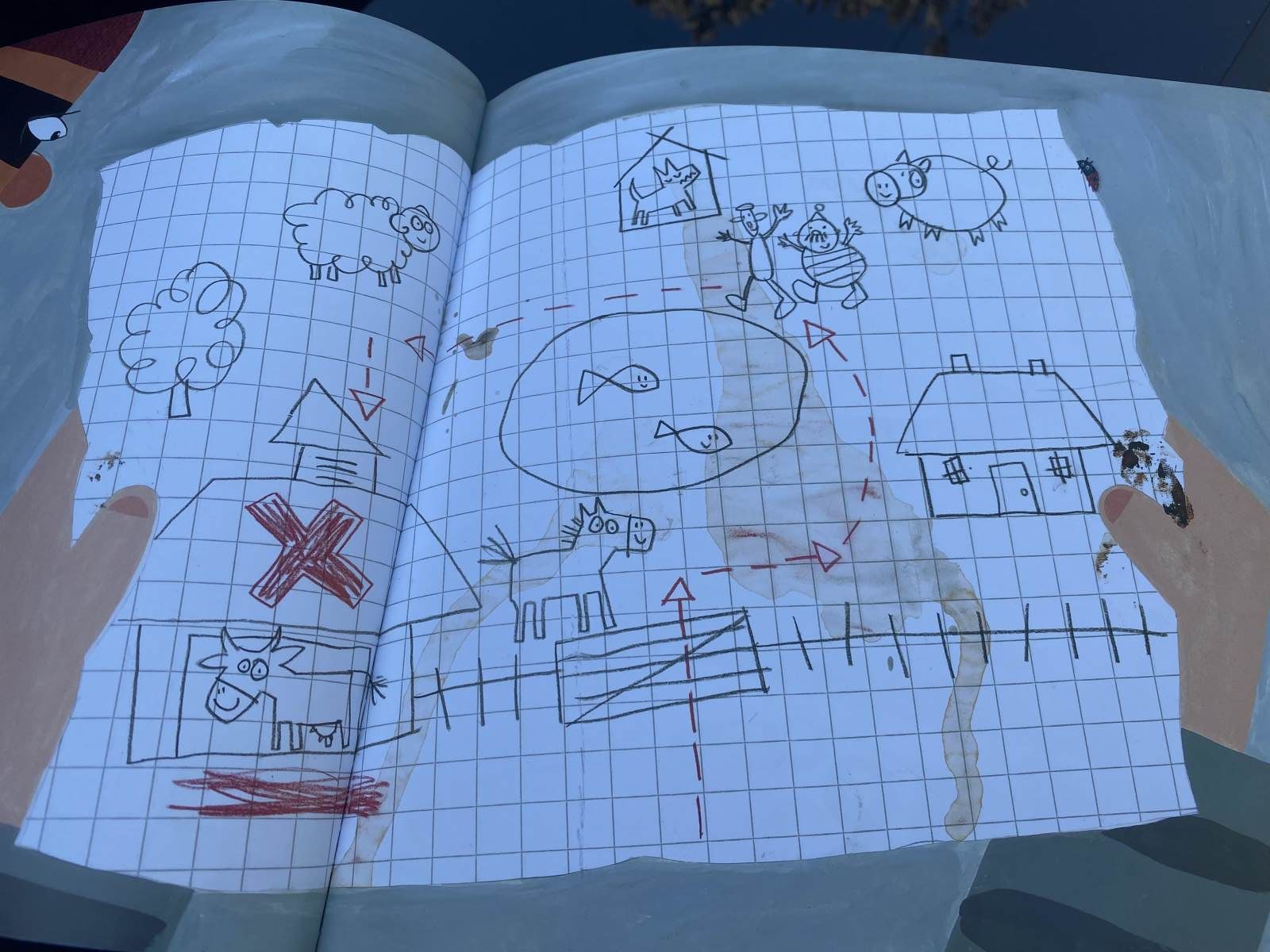
-Your job is to make a map of your own. First you need to choose a prize that you will find and a place where you will hide it. Next choose a place you are going to start your treasure map. Think about the instructions you need to find the prize and draw a map to help you get there. See if you can use directions to help you find the prize.
PSED
- Snap! Let's play a game of snap. All you will need is some pictures of animals you can either print these off or draw them yourselves. You will need two of each animal. Once you have got the pictures of the animals you need to cut them out like cards and shuffle them up in one pile. Then, with the cards facing down share the pile between the players- REMEMBER not to show anyone your cards! Taking it in turns, lay down a card face up and as each person lays you are looking for the pictures to be the same. If two pictures that are the same and are on top of each other on the pile then you must race to shout SNAP!
- Make a den/dark space using blankets, duvet covers or any large piece of material. Experiment with using a torch and talk about how it works, what they are used for and to use them safely (not to shine in peoples eyes). Then have a go at making shadows using the light and your hands.
- Ladybird Factfile-Find out lots of facts about ladybirds. You can go online or look in books to find out some information. You can then record these facts on a poster or make a fact book using pictures and writing. (Adults may need to scribe underneath children's writing).
- Add the spots together on both sides of the ladybird to find out how many spots they have. You can use the template and spots provided or you can draw and make your own.
-You can make this into a game by using a dice. Roll the dice and place that amount of spots on one side of the ladybird. Then roll the dice again and place that amount of spots on the other side. Add them all together and find out how many spots there are altogether.
- Making ladybird biscuits- Practise your counting and measuring skills to make these yummy biscuits. Find the recipe below.
- Sound Box/Bag
-Using an old tub/box/bag, go on a sound hunt around your house. You are looking to find objects that all begin with the 'p' sound. You only need around 5 objects to go in your box/tub/bag.
-'p- as in pig not "peeee or puuuh"
- Drum around! You can do this using any kind of stick like object- a wooden spoon, a pencil or even a stick. Moving throughout the house, use your "beater" to find different sounds in your house- don't forget to venture outside too! Listen to the sounds different things make whether you tap or stroke and talk about the sounds you hear.
Here is one I did at home. This sounds bumpy! Can you guess what it is?
- Keep an eye out for a phonics game upload this week too.
- Make a symmetrical ladybird. Just like we did with the butterfly using paints can you make a ladybird that is symmetrical?
Start by folding your paper in half. Then on one half of the paper paint half a circle - start at the top and bring your paintbrush down and round heading towards the bottom of the paper and join it back to the fold in the middle. Fill in the semi-circle and then add your spots and legs- dont forget you only need to paint half! then fold in half and press down. When you open it up you should have your ladybird.!
- Make salt dough ladybirds
You will need:
14 tablespoons of flour
7 tablespoons of salt
7 tablespoons of water
2. Mix the flour and salt in a large bowl. Add the water and stir until it comes together into a ball.
3. Transfer the dough to a floured work surface and roll out- you don't want them too thick or they will not cook! Shape into circles- you can use a cutter or just a mug to do this. Then using spare dough, roll into little sausages to make the legs and stick them on, just like we do with playdough.
4. Place them on the baking tray and put into the oven for a minimum of 2 hours. Long and slow is the best way! Once they have solidified take them out and allow to cool.
5. Once ready you can paint them to look like real ladybirds!
- Sing old Mac donald had a farm using the animals from the story.
__________________________________________________________________________________
Home Learning 2020
-
All children have been sent home a with a learning pack to carry out whilst at home during this time of closure. In each pack there is a range of activities and games for the children to use at home in order to continue their learning. Please feel free to further develop these in order to extend your child's learning; they are simply a foundation to get them started!
Please find the learning pack below:
These activities do not need to be carried out immediately and all at once, Miss Bell will upload lots of activities and learning for you to carry out over the weeks including these ideas.
It is very important to support our children during these difficult times and one way of doing this is to keep their routine as normal as possible. Here are some simple ideas that might help you in doing this. REMEMBER: GETTING DRESSED IS VITAL FOR MOTIVATION AND MENTAL HEALTH!
-
Getting up and getting dressed at normal times.
-
Go for a short walk
-
Play in the garden
-
Do some yoga (type in cosmic kids yoga on Youtube)
-
Play
-
Eat meals together
-
Share a story
-
Go to the park (if possible)
-
Help with chores (Nursery do wash up their own bowls at school!)
-
Drawing, painting, making, cooking, puzzles, gardening, board games
-
Have snack
-
Have a bath/shower as normal
-
Build a den with sheets and pillows
-
Camp in the garden (*if possible)
What kids need right now is to feel comforted and loved. To feel like it’s all going to be ok and that might mean that you tear up your perfect schedule and give your kids a bit more love. Play outside in the garden and go on walks with the dog, just don’t chat with others. Bake biscuits and paint pictures. Play board games and watch movies. Do a science experiment together or find virtual field trips of the zoo. Start a book and read together as a family. Snuggle under warm blankets and do nothing.
Don’t worry about them regressing in school. Every single kid is in this boat and they all will be ok. When we are back in the classroom, we will all course correct and meet them where they are. Teachers are experts at this! Don’t pick fights with your kids because they don’t want to do math. Don’t scream at your kids for not following the schedule. Don’t mandate 2 hours of learning time if they are resisting it. If I can leave you with one thing, it’s this: at the end of all of this, your kids’ mental health will be more important than their academic skills. And how they felt during this time will stay with them long after the memory of what they did during these weeks is long gone. So, keep that in mind, every single day.


